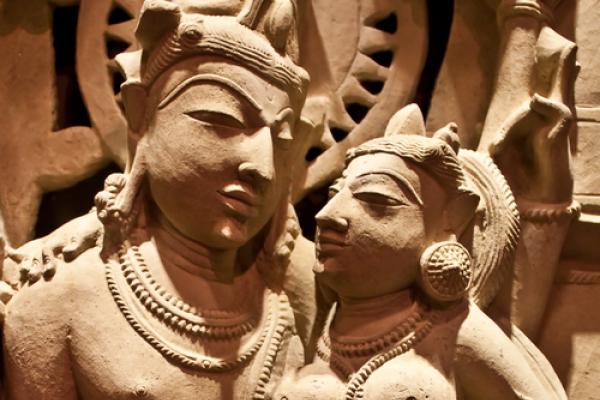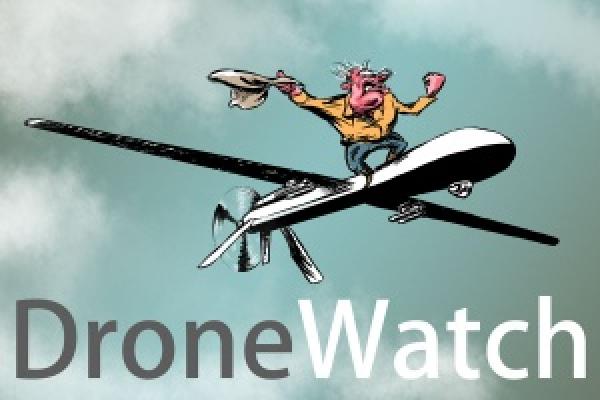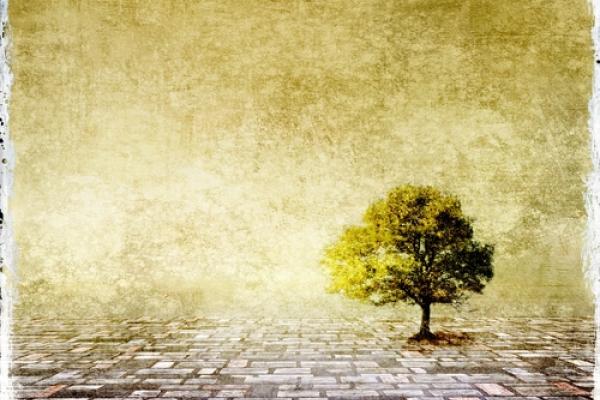With their “True Love Waits” jewelry, conferences and T-shirts, Christians may be the face of the abstinence movement, but Muslims and Hindus are more likely to abstain from premarital sex.
That's the conclusion of a new study in the American Sociological Review, which also found that Muslims and Hindus -- at least in the developing world -- are more likely than Christians and Jews to refrain from extramarital sex.
“All major world religions discourage sex outside of marriage, but they are not all equally effective in shaping behavior,” said Amy Adamczyk of the John Jay College of Criminal Justice, who co-authored the study with John Jay doctoral student Brittany E. Hayes.
Drawing on the Demographic and Health Surveys funded by the U.S. Agency for International Development, the study included data from 31 developing nations collected between 2000 and 2008. The authors focused on individuals' responses to questions on religious affiliation, marital status, and sexual behavior outside of marriage.
Adamczyk said the study evolved from another study she was doing that found countries with large Muslim populations have very low rates of HIV and AIDS. "I was trying to figure out why that would be,” she said. One reason she considered was lower rates of sex outside of marriage.
For our brothers and sisters on the East Coast, in the path of the storm they call "Sandy," I've put together a little music for you to help pass the time. Sending you prayers of protection, peace, and grace (and, I hope, more than a bit of musical joy and solace) from the shores of the Pacific here in California at the SoJo West office.
Inside the blog, there are 30 videos. For those of you with power (and an Internet connection), I hope it helps pass the time and maybe even gets you to get up and dance a little in your living rooms.
Here's the song and video the playlist begins with: "No Storms Come" by our Sojo friends, The Innocence Mission:
Editor's Note: Sojourners offices, which are based in Washington, D.C., will be closed due to the weather. We pray for the safety of our staff, neighbors, and all those affected by this storm.
God, we pray for all those along the East Coast in the path of Hurricane Sandy. Grant safety to all, including the first responders. We pray for all those who will lose electricity and whose homes may be been damaged. But we pray especially for those who have no homes and no shelters in times such as these. We ask that your hand would protect them and keep them safe. May our paths cross with theirs so that we might have an opportunity to love and serve them. Amen.
"O Lord of LIght" by the Innocence Mission
It's been a very musical weekend.
Pictured at left is a Foster 7-string guitar. It's just like a traditional 6-string acoustic, but with the added rumble of a low-b string. It's an interesting beast to play. Lovely, really. I like that extra resonance in the low end, plus, if truth be told, I like singing with it. Here is a little recording from Soundcloud. I recorded the file below on my phone. Any tinnyness is purely because of the phone.
This week, the Washington Post published a major three-part series, written by three veteran correspondents, titled “The Permanent War.” The series is an in-depth look at U.S. counterterrorism policies, particularly targeted killings.
In part one, Greg Miller focuses on the “kill lists” for drone strikes and other covert operations, and how they have evolved.
Over the past two years, the administration has worked on a “next-generation targeting list called the ‘disposition matrix,’ which is a“single, continually evolving database in which biographies, locations, known associates and affiliated organizations are all catalogued. So are strategies for taking targets down, including extradition requests, capture operations and drone patrols.”
Miller concludes that “Privately, officials acknowledge that the development of the matrix is part of a series of moves, in Washington and overseas, to embed counterterrorism tools into U.S. policy for the long haul. … For an administration that is the first to embrace targeted killing on a wide scale, officials seem confident that they have devised an approach that is so bureaucratically, legally and morally sound that future administrations will follow suit.
Some crazy faces, hilarious animal photo bombs, awesome music at NPR and KEXP, God in Golf (in a good way), and Sojourners' very own Alycia Ashburn (talking Creation Care with the people at OnEarth). Awesome links for an awesome day!
Reentry is often a pain in my ass.
It's true. I get a chance to get away from it all, to spend some time with friends and begin to unwind and it's glorious. But then there's the return trip home. It always takes longer. It's like slogging through Chicago slush. Painful. Unpleasant. So, after years of dealing with this side of my personality, I've tried to develop a habit of articulating the positives of leaving.
I rise on the wrong side of the bed the day after spending time in contemplation and wonderment. It happens. I apologize to Spouse and try not to step on any toes. Rev. Crankypants is in the house.
So, to undo the crankyness, I want to thank Brother Rob for his kind attentions over the last few days. I want to thank him for letting me use his name in such a scandalous way as I have. His coattails are long. It's astonishing how using his name in such a title can bring traffic to one's blog. It's a little embarrassing, really.
Rob is a good man trying to do some radical stuff. He has a ministry to those who understand the call to be fully awake and alive in this world as a radical posture.
In drone news this week:
• The Washington Post reported that Ben Emmerson, U.N. special rapporteur on counterterrorism and human rights, and Christof Heyns, U.N. special rapporteur on extrajudicial, summary or arbitrary executions, will investigate the use of drone attacks and other targeted assassinations by the U.S. and other governments. According to Emmerson, “I will be launching an investigation unit within the special procedures of the [U.N.] Human Rights Council to inquire into individual drone attacks, and other forms of targeted killings conducted in counterterrorism operations, in which it has been alleged that civilian casualties have been inflicted.”
• Sixteen people from the Upstate Coalition to Ground the Drones and End the Wars were arrested Thursday while blocking gates at the New York National Guard’s Hancock Field near Syracuse. The Syracuse Post-Standard reported that “The protesters believe that such operations are wrong and use the protests and arrests as a way to educate the public about the issue, said Ellen Grady, a protester from Ithaca.”
• The British High Court is hearing a case brought by Pakistani Noor Khan, whose father was killed in a suspected drone attack. According to the BBC, “Judges are deciding whether there should be a full judicial review into the legality of any UK co-operation with the Central Intelligence Agency.” In the same case, the Washington Post reported that James Eadie, lawyer for Britain’s Foreign Office, told the Court, “Ties between Britain, the U.S. and Pakistan could be jeopardized if a judge grants a request for a court inquiry into the possible role of U.K. spy agencies in aiding covert CIA drone strikes in Pakistan’s northwest tribal region…”
• In Pakistan, DAWN reports that a two-member panel of the Peshawar High Court has served notice on former president Pervez Musharraf to appear before the court. The Court is hearng a petition that has been filed against drone attacks in the Federally Administered Tribal Areas (FATA), in particular the killing of innocent people including women and children.
• On Slate’s Map of the Week, a map showing the location of the 284 drone attacks reported in Pakistan under the Obama administration.
I was pretty amazed by the popularity of the first lists of Christian clichés I created (linked at the bottom of this article). I think it was because so many Christians saw themselves somewhere in the list and others (maybe even some Christians!) have been on the receiving end of these clichés and resonated with my frustration in hearing them pretty much my entire life.
Since that initial series ran, I’ve been thinking about other things Christians often say that tend to do more harm than good. So here are a few more to add to the list.
Bless his/her heart: This usually follows one of two less-than-Christian kinds of statements. Either it’s said after some kind of thinly veiled insult or after a juicy bit of gossip about the person whose heart you want to be “blessed.” Examples include, “Did you hear Nancy’s husband got caught sleeping with his secretary? Bless her heart,” or, “He’s not exactly the sharpest tool in the shed, bless his heart.”
If you’re from the South, you definitely know what I’m talking about.
When people talk about the fall of humanity in the Jewish Genesis story, we never talk much about the Tree of Life. The Tree of the Knowledge of Good and Evil gets all the headlines and sermons because that’s the one that’s supposed to define us. That’s what we see, when we look around at humanity: The Fall, and a lot of evil triumphing over good.
Martin Luther, the father of Protestant churches, “was once asked what God was doing before the creation of the world,” according to German Lutheran theologian Dietrich Bonhoeffer. “His answer was that he was cutting canes for people who ask such useless questions.”
Who says you can’t offer a doctrine of abundant grace with a bit of sarcastic wit? For Bonhoeffer, this was really a question of why. Why did God create? What was going on, such that God decided to make a world? As Bonhoeffer saw it, this is a question rooted in guilt, shame, and fear. It’s really asking: What did God want of the world? What did God make me for? Am I living up to it? Am I accepted? It’s a question falling from the Tree of the Knowledge of Good and Evil, not the Tree of Life.






